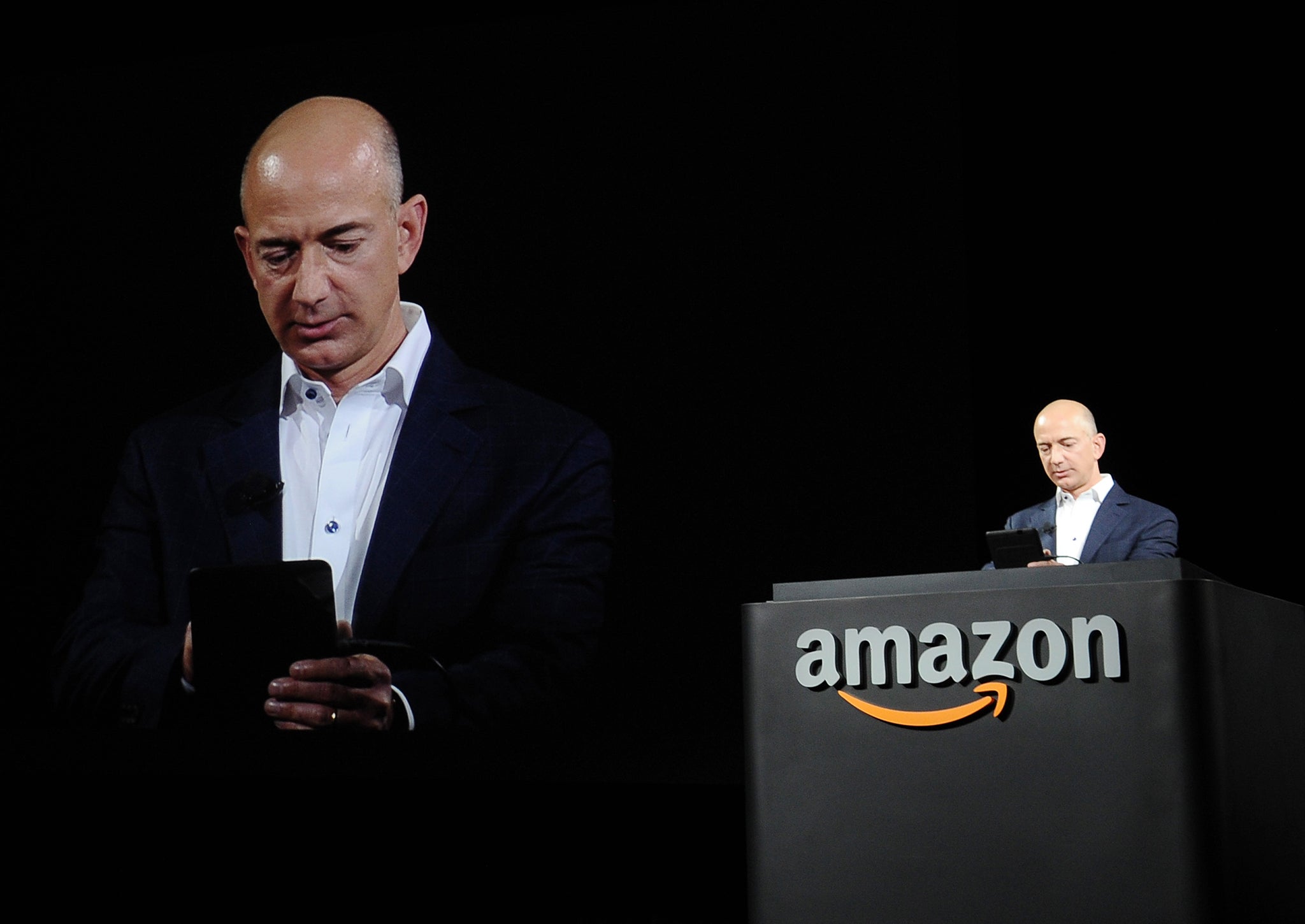The Independent's journalism is supported by our readers. When you purchase through links on our site, we may earn commission.
I'm never going to buy anything from Amazon, and neither should you
Thanks to Jeff Bezos we've started to believe we deserve things the moment we want them, regardless of the human cost

I don’t shop at Amazon and I don’t actively belong to any of the websites owned by them either. When they acquired my favourite book review website, Goodreads, I abandoned my account and ran a mile. I'm a videoblogger, and on the several occasions I’ve been approached to work with Audible, Amazon’s audiobook company, I get a few words in before deleting the email. Many of my vlogs are about books, their successes, failures, and value. Over the years I have become convinced that Amazon does not value the book industry, and the recent New York Times exposé once again raises allegations that they value people – specifically, their employees – even less.
So let’s get this out of the way: is Amazon the only company in the world that seems to have deep problems with its structure and culture? No. Is it the only company in the world accused of questionable, high pressure labour practices or where workplace deaths have occured? Absolutely not. Is it the only company with no women in top leadership positions? No! But Amazon has dictated the way in which we purchase and market products online and we have let it do so because it’s convenient. Somewhere along the way we started to believe we deserved to have these things the moment we wanted them. It seems that entitlement and ruthlessness fostered in customers by Amazon seeps all the way up the chain for model behaviour.
I was disappointed to see responses to the Amazon exposé of “if you’re unhappy at your job, leave!” This was echoed in Jeff Bezos’ memo to Amazonians on Sunday. Bezos said: “The article doesn’t describe the Amazon I know or the caring Amazonians I work with every day.” He continued: “You are recruited every day by other world-class companies, and you can work anywhere you want. I strongly believe that anyone working in a company that really is like the one described in the NYT would be crazy to stay. I know I would leave such a company.”
What a luxury to decide for these people that they should have just chosen to leave their job and go for another one. The stress of applications and interviews wouldn’t phase an Amazonian who was really qualified and really putting their all into their work, because they’d snap up another job right away. You’re so good that you could be hired anywhere, why would you be here if you didn’t want to be? It smacks of gaslighting.
Bezos says the New York Times story does not describe the Amazon he knows, and that "our tolerance for any such lack of empathy needs to be zero." But when there are a limited range of experiences at the top and a review process that routinely pushes people out at the “bottom” in a culture of ranking and a keen focus on data, I’m not sure I trust him to know his company very well at all. Unfortunately, though, this story will likely fade within the week because Amazon is oh so convenient and oh so cheap.
The company has framed its customer obsession around convenience, trialling same-day delivery and rush services. Sometimes that convenience is tested, whether it's due to delays in deliveries caused by lengthy disagreements with publishers, or Macmillan’s books being pulled entirely. When this happens, Amazon relies on us all being more annoyed at not being able to have the thing we want than with the practices that rush these objects to us in the first place. Amazon relies on us being petulant, clamouring babies, whose mouths they can quickly stick a dummy in.
Amazon has a mandate for how we buy and sell things, but we can still vote with our wallets and saved credit card info. This is, after all, a business that is clearly terrified of the slightest failure. I understand it being hard to kick convenient habits – it’s taking me a long time to wean myself off high street clothes because I don’t see the people making them in terrible conditions. And one article may hit hard and get everyone talking, but that outrage is unsustainable, and will likely fade away amid a form of #NotAllAmazonEmployees.
However, one way to sustain the backlash is to slow down the moment between wanting to buy and the click itself. Buying something and how we buy it is an active, not passive moment. We've got to stop and think: what’s most important to us? Money? Convenience? Speed? Or, God forbid…people?
Join our commenting forum
Join thought-provoking conversations, follow other Independent readers and see their replies
Comments
Bookmark popover
Removed from bookmarks